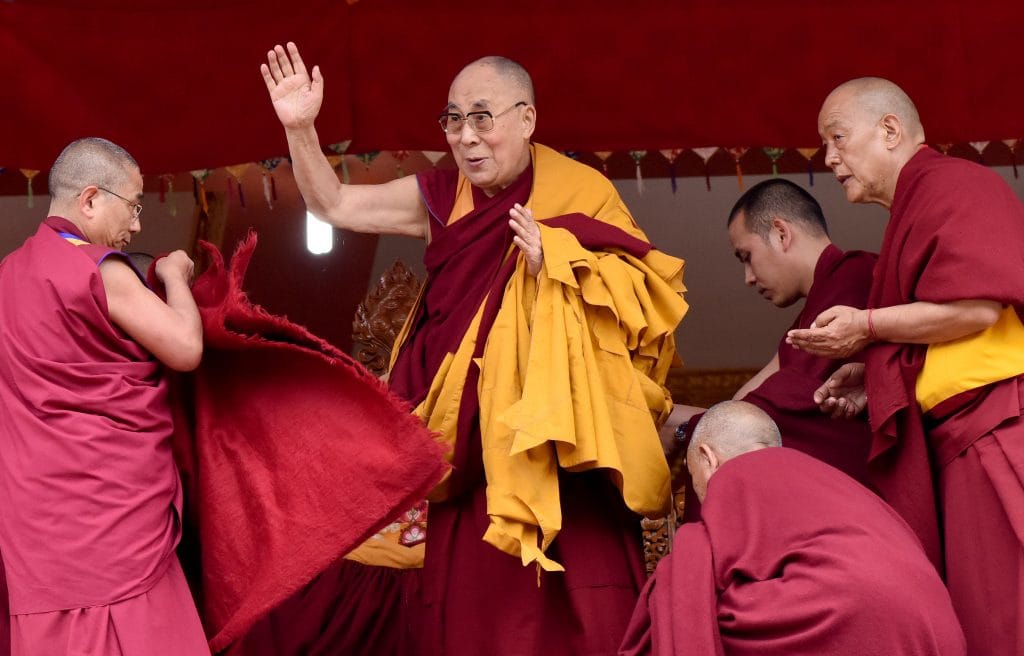India Stand on Dalai Lama remains same ,After ‘Skip Dalai Lama Events’ Report
 NEW DELHI :India’s stand on Dalai Lama is “clear and consistent” the Ministry of External Affairs said today in an apparent response to reports that the Union government had advised central and state functionaries to avoid going to events organised by Tibetan leaders in India.
NEW DELHI :India’s stand on Dalai Lama is “clear and consistent” the Ministry of External Affairs said today in an apparent response to reports that the Union government had advised central and state functionaries to avoid going to events organised by Tibetan leaders in India.
“Government of India’s position on His Holiness the Dalai Lama is clear and consistent. He is a revered religious leader and is deeply respected by the people of India. There is no change in that position. His Holiness is accorded all freedom to carry out his religious activities in India,” the MEA spokesperson said in response to queries over the news report.
The MEA said India’s position on the Dalai Lama has not changed after a media report said that the centre has asked officials to stay away from Tibetan functions to mark 60 years in exile of the Dalai Lama since this is a “sensitive time” for India-China ties.
According to the news report, Cabinet Secretary P K Sinha, acting on a note sent to him by Foreign Secretary Vijay Gokhale, sent out directions asking “senior leaders” and “government functionaries” from both Centre and states to desist from participating in events organised by the “Tibetan leadership in India”.
The Foreign Ministry statement, however, is silent on the note, only saying that India’s position on the Dalai Lama “is clear and consistent.
Brahma Chellaney, professor of strategic studies at the Delhi-based think tank Centre for Policy Research, described the government’s stand as “unfortunate”.
“MEA didn’t protest China’s refusal – in breach of two bilateral MOUs (memorandum of understanding) – to share upstream data on Brahmaputra and Sutlej or its cutting off Indian pilgrims’ access to two sacred sites in Tibet. And now this, when India should be doing the opposite,” Prof Chellaney tweeted.
Late last month, Foreign Secretary Vijay Gokhale, who reportedly held the key negotiations to resolve the 73-day standoff at Doklam, visited Beijing and held talks with Chinese Foreign Minister Wang Yi. His visit was in the backdrop of difficult bilateral and trilateral issues being dealt with by the two countries.
The Doklam standoff ended on August 28 after the Chinese military stopped road building close to the strategic Chicken Neck corridor in an area claimed by Bhutan.
Indian strategic experts saw the Chinese activity along the borders in Doklam and in the Indian Ocean region as an attempt to narrow India’s strategic space by penetrating India’s neighbourhood
Amid reports of New Delhi keeping its forces on standby after the Maldives plunged into a crisis last month, it was China that repeatedly warned the international community including India against military intervention in the tiny island nation, declaring that it could complicate the situation.(With Agency Inputs )

